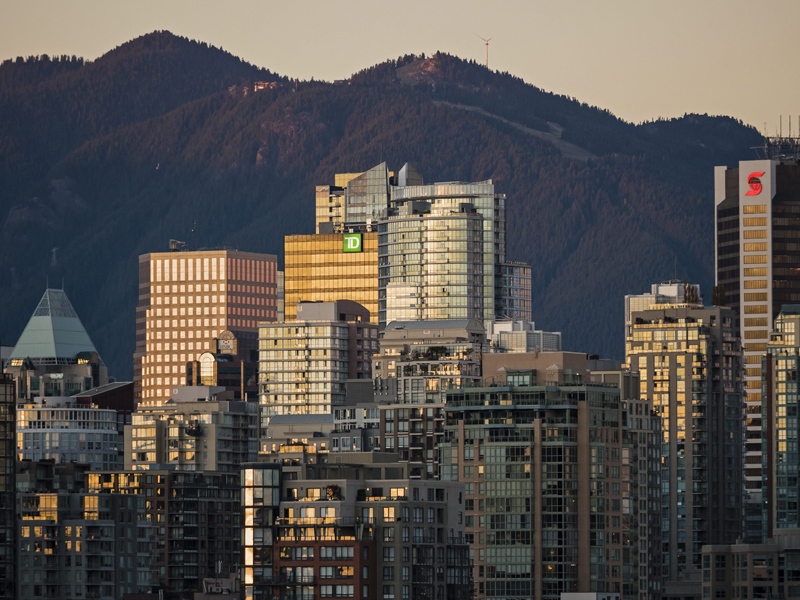For 18 years, the federal government invited rich people from around the world to buy a life in Canada.

The Immigrant Investor Program (IIP) sought people with net worth of at least $1.6 million to make an $800,000 loan to the Canadian government that would be returned to them after five years, interest-free. In exchange, they were given permanent residency.
The feds shut the program down in 2014, saying it provided “limited economic benefit to Canada;” it attracted investors who paid “less in taxes than other economic immigrants,” and media reports have linked such programs to skyrocketing home prices.
Three years later, the Conference Board of Canada has issued a report calling on the feds to bring it back — but to make sure it’s “done right.”
READ MORE: Strong words from premier on abolishing immigrant investor program
Kareem El-Assal, a senior research associate in immigration with the Conference Board, wrote the report recommending the federal government establish a new IIP.
El-Assal admitted that programs like the IIP “haven’t done very well.” But the report flowed out of a summit that imagined how the IIP could be improved.
“We were just performing an intellectual exercise,” he said.
Potential benefits
The report cited three potential benefits of any future IIP: it could allow provinces to accrue interest on investors’ loans; it could bring money for economic development; it could boost consumption.
The report didn’t show full confidence in any of these benefits, however.
While interest rates are set to go up soon, a 2015 analysis suggested provinces and territories still making money from IIP funds had made around $39,600 per investor.
That’s not a lot of cash when you consider settlement costs for investors and their households, David Ley, an expert in millionaire migration and a UBC professor, told Global News.
“They will be making use of educational services, health services etc.”
The report also argued that a new IIP could create thousands of full-time equivalent jobs.
It cited analysis by Immigration, Refugees and Citizenship Canada (IRCC) showing that investor funds helped create 10,781 FTE positions from 2007 to 2011.
But IRCC couldn’t determine whether these jobs would have been created without an investor program — suggesting this particular benefit is “positive, though not as large” as it could be.
READ MORE: B.C. city now ranks among world’s top 2 luxury home markets, and it’s not Vancouver
Investor families could also potentially boost consumption, the report said; they spend about $750,000 per household on investments, goods, services and real estate, according to one estimate.
But that estimate could be overstated; it wasn’t derived from a representative sample of immigrant investors.
Real estate prices
Programs like IIP have been “significantly implicated” in skyrocketing home prices in various cities — especially Vancouver, Ley noted.
He has estimated that, from the late 80s to the late 90s, business immigrants brought anywhere from $35 to $40 billion for their use in Canada.
“If only a small fraction of that, if only 10 per cent, and in fact it was much more than that they would dedicate went to housing, you’ve got an impact of $3 to $4 billion that is hitting the Vancouver market,” Ley said.
“That’s a big impact.”
WATCH BELOW: Quebec’s Immigrant Investor Program criticized for housing prices

Media reports have blamed the Quebec Immigrant Investor Program (QIIP), which is still running, for funnelling foreign money into Vancouver’s housing market via a “back door.”
Quebec’s program works very much like the IIP did, offering permanent residency for an $800,000 loan to people with net worth of at least $1.6 million. Investors only have to “intend” to settle in Quebec; they’re not required to stay there.
And many don’t, reports show. At least 89 per cent of successful applicants to the QIIP settle in other cities, “mainly Vancouver,” according to Ian Young at the South China Morning Post.
The Conference Board report cited research showing immigrant investors contributed to a three-per-cent increase in prices in Vancouver — a “small” one, according to co-author and SFU Prof. Andrey Pavlov.
The research looked at how home values were affected by the 2012 suspension of the federal IIP program, but not its shutdown in 2014.
Pavlov said it focused on the suspension because “asset prices, including real estate prices, respond to news, not to actual changes in policies that have already been announced and are anticipated.”
READ MORE: B.C. foreign buyers tax really did yank down Vancouver home prices: BMO
Ley, however, called the analysis “rubbish,” saying it wasn’t based in on-the-ground research.
“My information comes from speaking to many realtors, many business immigrants, knowing how much money they’re bringing to the country,” he said.
‘Millionaire Migrants’
In 2010, Ley published a book titled Millionaire Migrants; it found that the IIP wasn’t significantly growing their wealth in Canada.
It described 24 exploratory interviews that Ley conducted in 1997, with wealthy migrant families that had come to Canada through business immigration programs like the IIP.
Interviewees came from Hong Kong and Taiwan, and they largely lived in some of Vancouver’s most affluent areas, such as Shaughnessy, Kerrisdale and Arbutus/Mackenzie Heights.
“Only three had made a successful economic transition to life in Vancouver,” he wrote.
Some had started businesses and failed; others didn’t bother trying, having been turned off by high taxes, tough regulations and meagre returns.
Ley went on to interview 250 business immigrant families in total, and “nothing we were to hear in much wider subsequent research challenged the results of this exploratory survey,” he wrote.
Less tax than refugees
If immigrant investors have played a role in rising home prices, they’ve also done it while paying little income tax, Ley’s research shows.
In his book, he cited tax return data for 1997 that showed investor and self-employed immigrants made average total income of $13,531.
For all immigrants and refugees, it was $18,621 — “leaving business immigrants far below the average performance.”
Data from 2013 told a similar story: in that year, “business class” or “investor immigrants” who had been in Canada for two decades reported the smallest employment incomes of any immigrant category.
This is likely because business immigrants haven’t been declaring their global income, Ley said.
READ MORE: Toronto-area home sales drop in May after province introduces foreign buyers’ tax
El-Assal said Ley has “valid points.”
Speaking to Global News, he reiterated that the top benefits of a new IIP would be consumption and the loan to the government.
But it’s unlikely to convince Ley, who feels he has seen enough to form an opinion on the program.
“I’ve already written a book, and I just don’t see any way forward with this proposal at all in terms of the historic record,” he said.
“It’s a closed book as far as I’m concerned.”






Comments